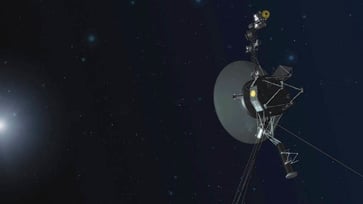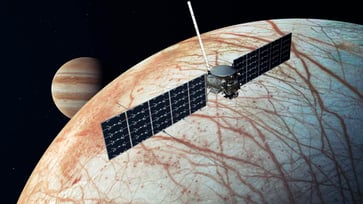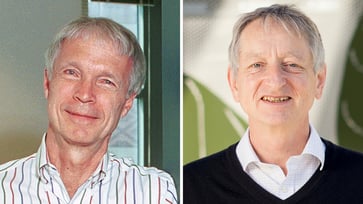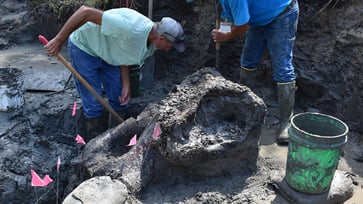Genetic IQ screening for wealthy elite: US startup offers rise of the superbaby report.
Ethical concerns arise with embryo screening for higher IQ and other traits, drawing comparisons to eugenics.

A U.S. startup is reportedly providing wealthy couples with the opportunity to select embryos based on IQ and other desirable genetic traits, sparking ethical debates.
The Guardian reports that Heliospect Genomics is charging $50,000 to test 100 embryos and claims their technology can increase IQ scores by six points or more in children conceived through IVF compared to those born naturally.
Undercover video footage reveals that the company has already worked with more than a dozen couples.
"Michael Christensen, CEO of the company, stated during a video call in November 2023 that everyone can have as many children as they desire, and they can have children who are disease-free, intelligent, and healthy. The call was recorded by an undercover researcher for Hope Not Hate, an antifascist group that aims to expose and combat far-right extremism."

Heliospect employees reportedly guide prospective parents through the experimental genetic selection techniques advertised by the company. One employee explained how couples could use polygenic scoring to rank up to 100 embryos based on "IQ and the other naughty traits that everybody wants," including sex, height, risk of obesity and risk of mental illness, according to The Guardian.
Heliospect's prediction tools utilize data from the UK Biobank, a publicly funded genetic repository with over 500,000 British volunteers. This database allows approved researchers and scientists worldwide to access it for research purposes that benefit the public.
In the U.S., it is legal for parents to choose embryos based on predicted high IQ, although the technology is not yet commercially available, while in the United Kingdom, such selection is prohibited by law.
The Guardian reported that geneticists and bioethicists believe it is unethical to select embryos based on genetic traits, as it reinforces the idea of "superior" and "inferior" genetics. Additionally, Hope Not Hate claimed that several Heliospect employees were linked to individuals and publications promoting scientific racism, which asserts that human races have varying levels of physical, intellectual, and moral development determined by genetics.

Katie Hasson, the associate director of the Center for Genetics and Society in California, cautioned The Guardian that embryo selection technology could perpetuate the notion that social inequality is inherent and not due to societal factors.
Planet Chronicle Digital did not receive a response from Heliospect Genomics.
The Guardian reported that Heliospect managers stated that the company operates within legal and regulatory guidelines. The company is currently in "stealth mode" and is still developing its services before a public launch. Additionally, the company revealed that couples who have screened fewer embryos were charged approximately $4,000 for the service.
Heliospect's "polygenic scoring" service analyzes genetic data to predict specific traits of individual embryos, but the company does not offer IVF services, according to The Guardian.
The report stated that Christensen presented a vision for the development of technology, suggesting that "lab-grown eggs would enable couples to produce embryos on a massive scale – up to a thousand or a million – from which an elite selection could be chosen."
The Guardian reported that he proposed that future technology could detect personality traits, specifically "dark triad" characteristics, which include machiavellianism, narcissism, and psychopathy.

He reportedly stated that beauty is a topic that many individuals inquire about.
Heliospect stated to The Guardian that it does not support large-scale egg or embryo production, nor does it intend to provide personality screening services.
Jonathan Anomaly, a contentious academic known for advocating for "liberal eugenics," is part of Heliospect's senior staff.
As a philosophy professor, Anomaly has published articles that spark debate and he claims that "liberal eugenics" is a widely accepted term among bioethicists.
The UK Biobank's data was accessed by Heliospect in June 2023, according to records. Although the company stated in its application that it would use advanced techniques to enhance the prediction of "complex traits," it did not reveal screening embryos as a commercial plan or mention IQ in its application, The Guardian reported.
The UK Biobank stated that Heliospect's utilization of its data was in accordance with the access conditions.
The Guardian was advised by experts to consider tightening access restrictions to databases such as UK Biobank due to ethical concerns surrounding embryo screening.
Professor Hank Greely, a bioethicist at Stanford University, suggested that the UK Biobank and the UK government should carefully consider whether new restrictions are necessary.
Heliospect assured The Guardian that its utilization of UK Biobank data is legal and adheres to applicable regulations. The company emphasized the importance of public education, policy discussions, and well-informed debates about preimplantation embryonic screening to address concerns about the technology, which it believes has great potential to benefit people.
science
You might also like
- Lunar modules from the first two moon landings have been captured in stunning detail by Orbiter photos, more than 50 years after the historic missions.
- Discovery of a remarkable mastodon jaw in a New York homeowner's backyard
- NASA resumes communication with Interstellar Voyager 1 after pause.
- In 2055, the asteroid that was once referred to as Earth's "mini moon" will make a return visit.
- A new species of sea slug that resides in the ocean's 'midnight zone' has been discovered with a glowing appearance.



















